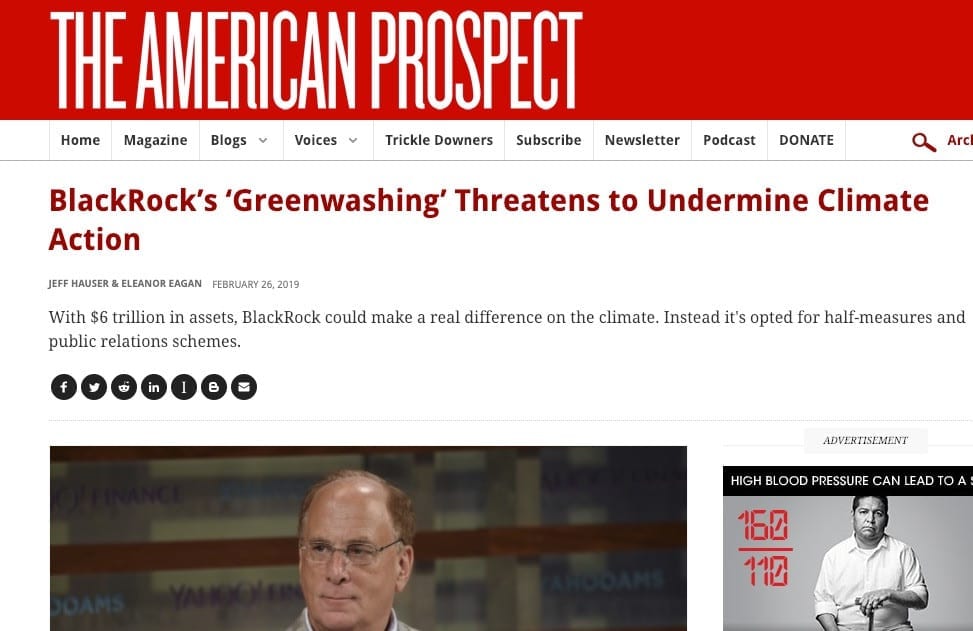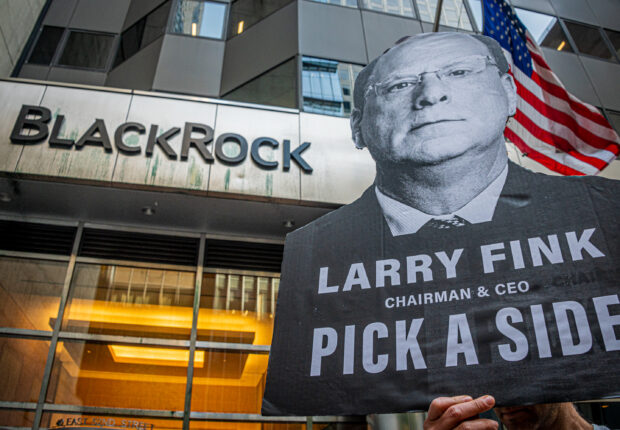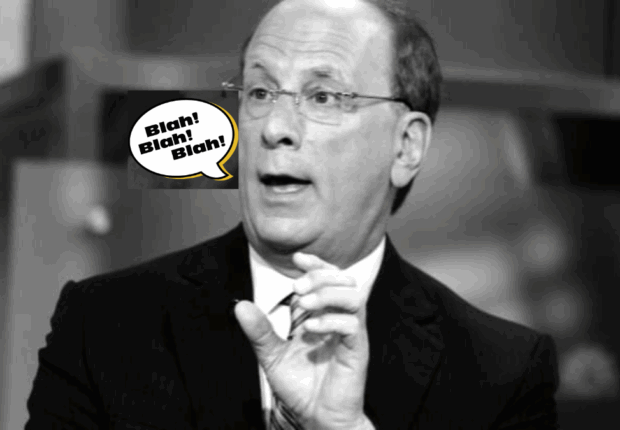
The American Prospect dives deep into how BlackRock could make a real difference on climate, but how they instead opt for “half measures and public relations schemes”.

This week Jeff Hauser and Elenaor Eagan of the Revolving Door Project posted a well reseaserched, well reasoned backgrounder on BlackRock’s outsized power and influence and how instead of using it for good they are mostly just shucking and jiving on the climate change issue.
Going so far as to call BlackRock “one of America’s leading greenwash companies”, they brought light to their revolving door hiring practices (hiring over 100 former Obama administration staff) and largely empty public relations work presenting themselves as fighting climate change, “even as their company’s practices are making it even less likely our society will respond to the climate crisis”.
Here is the most damning excerpt:
A year (after Fink’s 2018 CEO letter that admonished companies to have a social purpose), however, it had become clear that his were words empty of any meaning other than marketing. With only 12 years to avert climate disaster, BlackRock’s big move has been creating a set of “green” Exchange-Traded Funds (ETFs) to give investors more sustainable-investment options. In 2018, however, green ETFs only represented 3 percent of the firm’s assets under management.
That such a small fraction of BlackRock’s investments are in sustainable funds would be alarming by itself. It turns out, however, that these green funds are anything but. Scratch off the greenwash and you will find investments in coal, pipelines, oil, and gas.
In fact, far from scaling down its investments in polluting industries, BlackRock has increased its holdings in coal companies and is the world’s largest investor in new coal plants.
BlackRock, however, has not only failed to adequately change its investment strategy to respond to climate change, but also used its voting power to obstruct climate-change initiatives.
BlackRock typically fails to support shareholders’ efforts to force companies to disclose their climate-related risk. A study by 50/50 Climate Project found that BlackRock only voted to support 23 percent of shareholders’ climate and political influence–disclosure proposals, lagging significantly behind its peers.
The article goes on to speculate that the firm’s green efforts are an attempt to soften critiques from media and civil society groups, like us, and also to protect against any climate related pressure from a future Democratic administration.
“With climate change set to be a key campaign issue in 2020 and a policy priority for any future Democratic administration, we should be very concerned about BlackRock’s operationalization of the revolving door (with government).”
The article does a great job laying out the context for why BlackRock needs to up its game, going beyond token measures and mushy PR statements about “purpose” to stop being one of the planet’s biggest drivers of the climate crisis.

